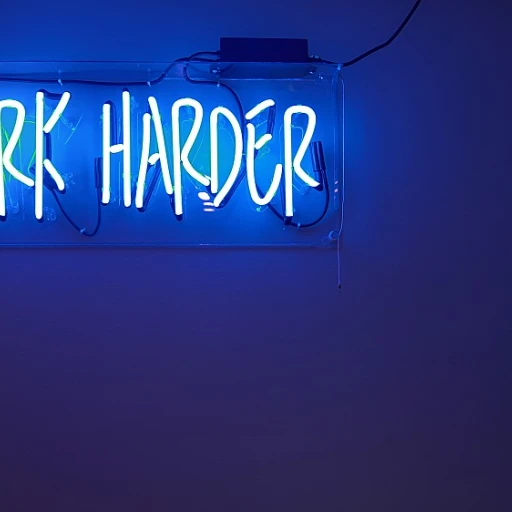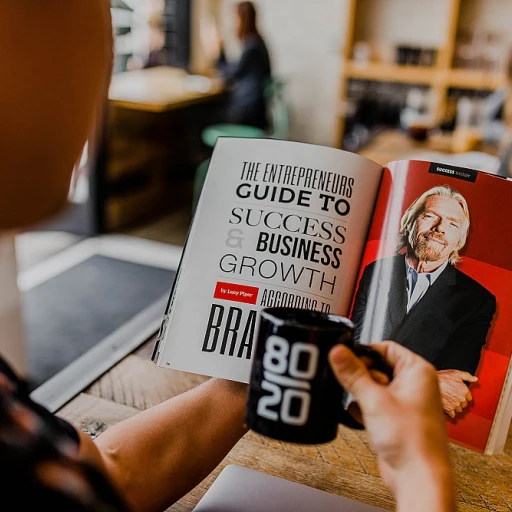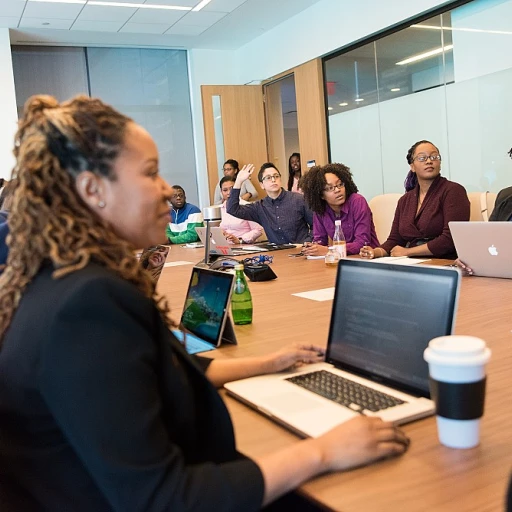The evolving landscape of manufacturing staffing
The manufacturing industry is undergoing significant changes, driven by technological advancements, globalization, and evolving consumer demands. As companies strive to stay competitive, understanding the modern candidate profile is crucial to meeting staffing needs effectively.
Transformations in the Manufacturing Environment
The current landscape of manufacturing staffing is shaped by advancements in automation and digital technologies. These developments require new skill sets, emphasizing the need for skilled workers who can manage complex machinery and data-driven processes. Companies face a growing demand for talent capable of thriving in a digital-first environment, leading to an increased focus on leveraging specialized skills.
Shifts in Workforce Dynamics
Manufacturing companies must address the skills gap as older workers retire and younger generations enter the labor market with differing expectations. The industry seeks a balance between experienced professionals and fresh talent to meet both immediate and long-term staffing needs. This dynamic has placed the spotlight on industrial staffing solutions that can quickly adapt and fill gaps, such as temporary staffing to cope with labor shortages.
The Growing Role of Staffing Agencies
Staffing agencies play a pivotal role in bridging the gap between job seekers and manufacturers. These agencies provide access to a pool of skilled workers, streamlining the hiring process and helping businesses manage workforce demand effectively. As a result, they are indispensable in aiding manufacturers to navigate the complexities of today's labor market.
For manufacturing companies to address current and future staffing challenges, they must remain vigilant in understanding these evolving patterns. By doing so, they can proactively devise strategies that align with the ongoing transformations in the industry.
The role of employer branding in attracting talent
The Crucial Role of Company Perception in Talent Acquisition
The manufacturing industry is constantly evolving, and as a result, companies must adapt their approaches to attracting the right talent. One key factor that significantly impacts the ability to draw in skilled workers is the perception of the company's brand in the eyes of potential employees. A strong, positive employer brand not only attracts high-quality candidates but also helps to retain current workers, creating a sense of loyalty and satisfaction among the workforce.
Employer branding has become an invaluable tool for companies looking to improve their staffing needs in the industrial sector. It revolves around creating a positive image of the organization by showcasing its values, culture, and opportunities. This can be particularly effective in bridging the skills gap that many manufacturers face today. Potential job seekers are more likely to engage with companies that demonstrate a commitment to workforce development and a supportive work environment.
Enhancing Company Image to Mitigate Challenges
There are numerous challenges in the labor market that companies must navigate to secure the talent they need. For instance, demand for advanced skills in areas like data analysis, supply chain management, and digital technologies continues to rise. Manufacturers must prove that they can offer these opportunities and are invested in the career growth of their employees.
Staffing agencies play a pivotal role in helping companies refine their employer brand. They provide insights into labor trends and effective staffing solutions, ensuring that businesses remain competitive in the industrial staffing market. By emphasizing a company's commitment to innovation and employee well-being, these agencies assist in creating a brand image aligned with modern workforce expectations.
Ultimately, a robust employer brand acts as a magnet for both temporary and long-term hires, enhancing a company's reputation in the United States and beyond. As the industry grapples with labor shortages and increased competition for skilled workers, investing in employer branding could be the key to securing a talented future workforce.
Challenges in meeting future staffing needs
Navigating the Complex Landscape of Industry Staffing
The manufacturing industry is grappling with several challenges that impact the future of its staffing needs. The growing skills gap, labor shortages, and the fluctuating demands of global supply chains are leading concerns for businesses worldwide.
In recent years, manufacturers have faced a turbulent labor market, exacerbated by retiring skilled workers and an insufficient influx of qualified talent. This conundrum is made worse when vital skills are missing in the job seekers pool, pushing companies to rethink their approach to workforce management.
To complicate matters further, many manufacturing companies in the United States find themselves relying heavily on temporary staffing solutions to plug the immediate gaps in labor. However, the over-reliance on temporary hires can be a double-edged sword. While it resolves short-term needs, it can hinder long-term growth and development in the sector.
Moreover, the steady evolution of supply chains introduces additional layers of complexity. Manufacturers must now prepare for the unforeseen challenges of a globalized market, which demands agile and robust staffing solutions.
Staffing agencies, too, play a critical role in addressing these challenges. They must evolve to offer comprehensive solutions that not only fill vacancies but also address the demand for skilled labor that can thrive in a dynamic industrial environment.
By considering these realities, it's clear that companies must take a proactive approach by engaging in effective employer branding strategies that resonate with future talent. The focus should lie on closing the skills gap and offering an appealing workplace that attracts and retains skilled workers, ultimately securing the long-term success of the industry.
For a more in-depth look at how employer branding plays into these dynamics, explore more on
enhancing your company's image through job branding. This approach will be essential in overcoming the hurdles that lie ahead in manufacturing staffing.
Strategies for effective employer branding
Enhancing Brand Perception to Draw Skilled Labor
In the competitive landscape of manufacturing, businesses must adopt strategic approaches to bolster their employer branding. Traditional recruitment methods often fall short of bridging the skills gap. Companies are thus investing in robust branding efforts to convey not just job opportunities, but meaningful careers in the manufacturing industry.
An effective branding strategy entails showcasing the strengths of the business, such as a commitment to innovation, a strong track record in maintaining supply chains, and competitive benefits. This plays a crucial role in catching the attention of skilled workers who can significantly contribute to a company's long-term success.
Building an Appealing Workplace Culture
Creating an appealing workplace culture is crucial. Manufacturing companies must integrate a culture of growth where industrial workers feel valued and have opportunities for advancement. Providing training programs to close the skills gap is one way to achieve this, offering workers the chance to develop and refine their expertise.
Moreover, transparency and excellent communication within the workforce can enhance the perception of the manufacturing environment. Workers today are looking for assurance that their work life aligns with their personal values and professional goals.
Leveraging Data and Digital Channels
Data can be a powerful tool in improving brand perception. By collecting and analyzing workforce data, manufacturers can tailor their strategies to meet workforce demand and supply. This includes recognizing the need for temporary staffing and understanding long-term staffing solutions.
Using digital platforms effectively can also raise awareness. For example, sharing stories of employee experiences on social media can help humanize the business and attract new talent. Staffing agencies can also be partners in spreading a positive employer brand message, reaching potential job seekers who fit the company’s criteria.
Collaboration with Staffing Agencies
Staffing agencies play an essential role in the recruitment process. By maintaining partnerships with agencies, manufacturing companies can effectively address labor shortages or spikes in demand. Agencies bring specialized expertise in talent placement and can help tailor recruitment strategies to match the desired skills and attributes required by job seekers.
For businesses ready to address future staffing needs, integrating these strategies into your business plan can make a remarkable difference in attracting and retaining the right talent.
Digitalization's Influence on Workforce Requirements
The rapid advent of digital transformation has indeed reshaped the landscape of staffing within the manufacturing and industrial sectors. With the current technological advancements, companies are increasingly relying on digital tools to meet their staffing needs efficiently. This shift is driving significant changes in workforce management and job roles.
The Integration of Data-Driven Solutions
Manufacturers are now equipped with advanced data analytics to predict labor demand more accurately, allowing for strategic planning and better decision-making. These data-driven solutions help companies identify skill gaps in their workforce and anticipate future staffing requirements, making it essential for manufacturers to keep up with technological integration.
Addressing the Skills Gap
As digital tools become more prevalent, the skills required for manufacturing jobs are evolving. There is a notable shift towards needing more technical skills, which consequently impacts staffing strategy. The implementation of advanced manufacturing technologies has created a need for reskilling and upskilling the current workforce to bridge the existing skills gap. Manufacturers who fail to address this growing demand may find themselves facing significant staffing challenges.
The Role of Staffing Agencies in Digital Transformation
Staffing agencies play a crucial role in this transition by providing temporary staffing solutions and specialized workforce management services. They help manufacturers navigate these changes by supplying skilled workers who have the competencies required in a rapidly evolving industrial environment. Agencies are now leveraging digital recruitment platforms to streamline the hiring process, thus reducing the time-to-hire and improving the quality of job candidates.
Future-Focused Staffing Strategies
Manufacturers must adapt to the wave of digital transformation by investing in long-term workforce strategies. By fostering a culture of continuous learning and development, companies can ensure a more resilient and adaptable workforce ready to tackle the future challenges of the labor market. Proactively addressing the skills gap and embracing digital recruitment strategies will be crucial in maintaining a competitive edge in the manufacturing industry.
Future trends in manufacturing employment
Adapting to Shifts in the Manufacturing Employment Arena
The manufacturing industry is poised for significant changes as it adapts to evolving employment trends. These changes are shaped by a confluence of factors including technological advancements, shifting workforce demographics, and the ongoing globalization of supply chains.
One of the key trends is the increasing reliance on digital tools and technologies. As industrial companies integrate digital transformation initiatives, there's a growing demand for workers with advanced technical skills and data-driven approaches. Skilled workers who are adept at operating sophisticated machinery or coding software solutions are becoming crucial to maintaining competitiveness.
Furthermore, the skills gap remains a significant challenge. The industry's shift towards high-tech processes has widened the gap between the skills of the available labor force and the needs of employers. This creates a greater emphasis on training programs and partnerships with educational institutions to prepare the workforce for the future.
Companies are also grappling with labor shortages and the challenges of attracting and retaining top talent. Demographic shifts mean that an aging workforce is leading to a decline in the number of workers available to fill industrial staffing roles. To overcome these staffing needs, manufacturers are reevaluating their temporary staffing and workforce management strategies to create more agile and appealing work environments.
Finally, as global supply chains continue to evolve, there is an increased focus on flexible staffing solutions. Organizations are leaning on staffing agencies and temp hire programs to meet fluctuating demand. This flexibility not only helps manage labor shortages in the United States but also aligns manufacturing staffing strategies with long-term business goals.
In conclusion, the future of manufacturing employment hinges on addressing skills gaps, leveraging technology, and enhancing workforce appeal to job seekers. By adopting comprehensive staffing strategies, industrial players can remain competitive in a changing labor market.














